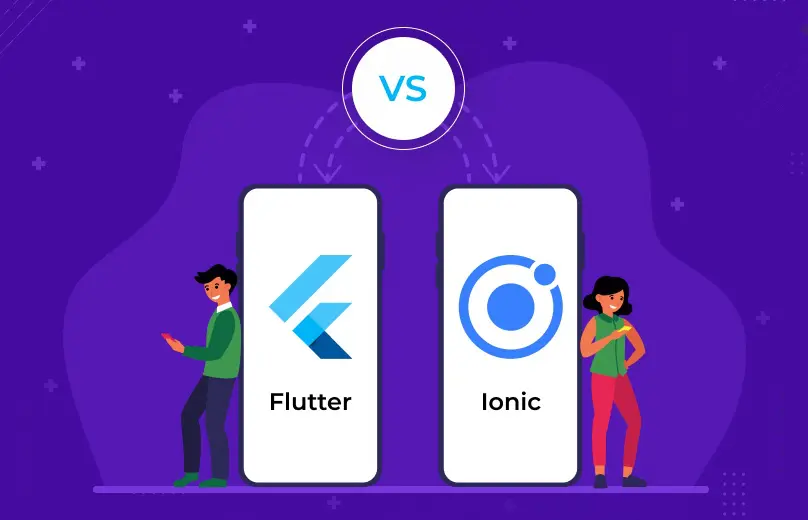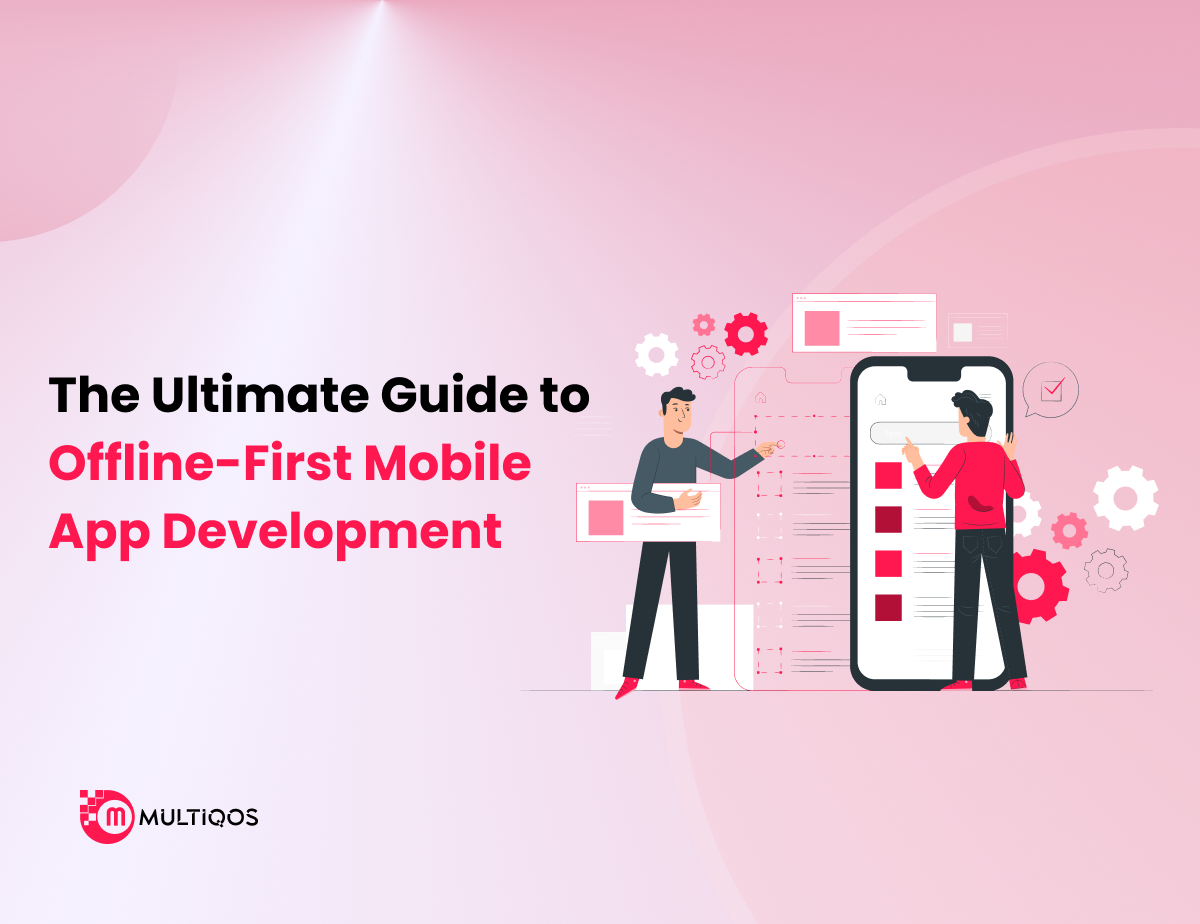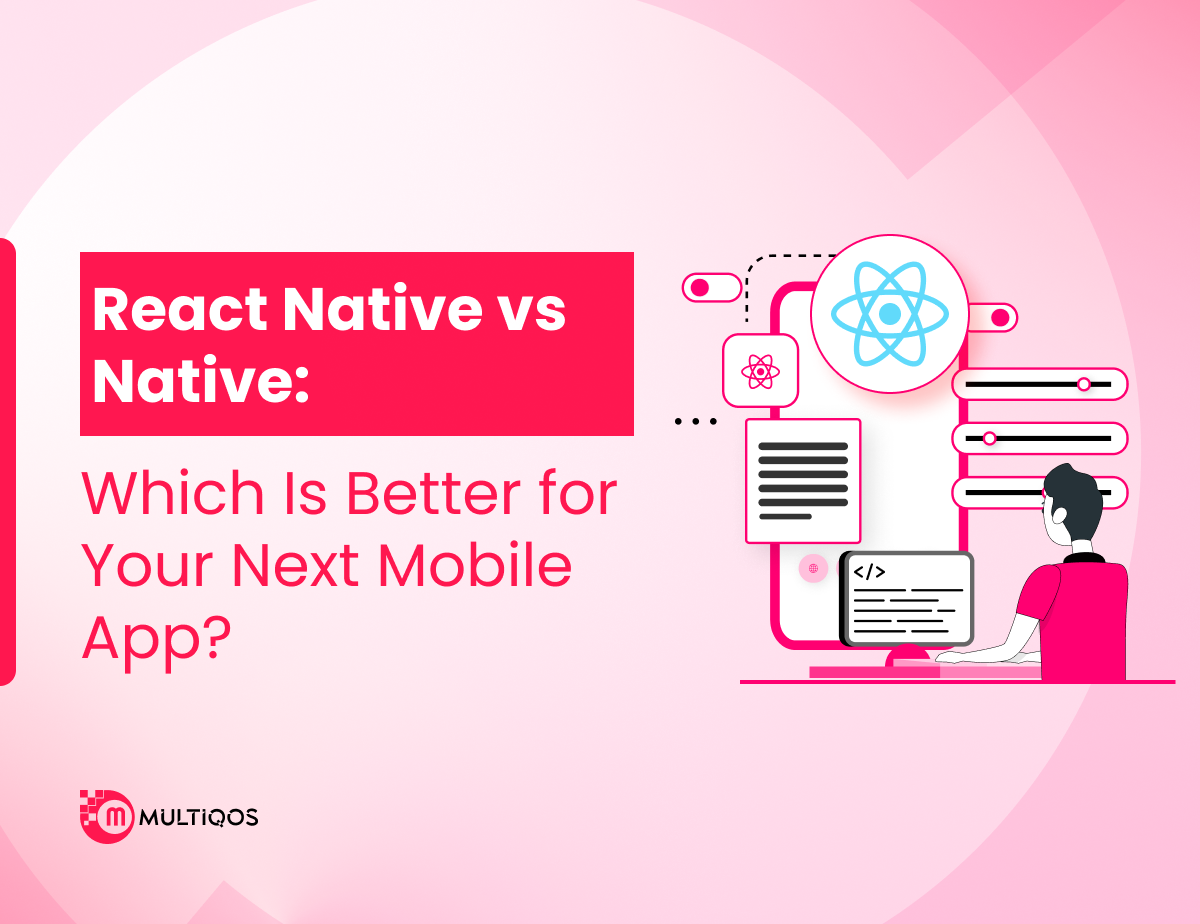Flutter or Ionic – Which One Should You Pick For Your Next Project?

Overview
Selecting a framework for developing cross-platform mobile apps can be confusing and tiring at the same time. Every framework is different and offers users with unique functionalities. While selecting the right framework for app development, you need a comprehensive analysis in terms of UI, learning curve, UI, etc.
You would come across Flutter App Development Company providing users with simplified applications that run on every platform. Businesses nowadays are opting for hybrid apps as they reduce the time of development. What’s more impressive is the fact that hybrid apps are cost-effective.
Two of the most popular hybrid frameworks capturing the attention of people are Ionic and Flutter. When the context is about popularity, both these frameworks have been backed by a massive team of developers.
Note that Flutter provides developers with a varied set of integrated tools, and widgets along with customizations. On the other hand, Ionic provides an array of plugins to hasten the app development procedure. So with these things in mind, let’s take a glance at the effectiveness of these two frameworks.
An Overview of Flutter
To be Flutter is an open-source framework that functions with a language called Dart created by Google. Flutter App Development Services use this framework to develop engaging and intuitive apps.
Quite interestingly, Flutter is also addressed as an enhanced UI toolkit that can be deployed to develop cross-platform apps with a unified codebase. In case you don’t know, Flutter provides you accessibility to create expressive and flexible UI with native performance. It is supported by a team of Google developers.
An Overview of Ionic
Well, Ionic is an open-source UI toolkit that allows you to develop cross-platform mobile apps. In case you don’t know, Ionic uses Webview for smartphones instead of using native device components.
To be precise, the Ionic framework uses JavaScript codebases like Angular, React, Vue, etc. On the other hand, this framework has various component presets which provide users with native functionality. Ionic is popular among developers as it provides efficient performance with minimal manipulation.
Advantages and Disadvantages of Flutter and Ionic
So here is the list of pros and cons of both these frameworks which would help you understand which one is better.
Advantages of Flutter
1. Rich Widgets
Well, Flutter Mobile App Development is popular for using rich widgets. Note that Flutter provides rich widgets that follow the guidelines of Material Design and Cupertino.
2. Seamless Integration
One of the key highlights of Flutter is that you don’t have to re-write codes. It easily integrates with Java for Android and Swift or Objective C for iOS.
3. Code Sharing
In the Flutter platform, codes can be shared and written across platforms faster and easier which makes it ideal for the development of MVP apps.
4. Swift Shipping
Flutter offers you swift iteration cycles and saves development time as testing is needed for a single codebase.
Disadvantages of Flutter
1. Tools and Plugins are not Versatile
Well, you would come across a varied set of tools and plugins. But they are not as impressive as Ionic.
2. UI is not that Great
The UI of Flutter itself fails to impress. Animation support along with vector graphics has issues in rendering plugins on time.
Advantages of Ionic
1. It is Platform-Independent
Cross-Platform Mobile Development has taken a huge hit because of Ionic. It decreases the time, effort and resources deployed to develop a cross-platform app while rendering it a native feel and look.
2. Develop-Friendly
One of the key highlights of Ionic is that it is developer-friendly. It develops a single codebase with the use of familiar JavaScript frameworks along with libraries. In short, it decreases code rewrites.
3. Offers Great Scalability
Note that Ionic offers developers with great flexibility. The framework scales effectively as the number of active users doesn’t affect its performance.
4. Simplistic Interface
Ionic saves development time as it provides a simplistic interface with the help of which the developers can access native SDK and API.
Disadvantages of Ionic
1. It is dependent on Plugin
Well, it is true that Ionic offers developers with a versatile range of plugins. However, developers have to create some highly specific features for the app to be functional.
2. Not Ideal for Process-Intensive Apps
Well, you cannot develop process-intensive apps with Ionic. Using it to develop heavy apps would make the app crawl.
Which Types of Apps Are Developed by Flutter?
Here is the list of apps commonly developed by the Flutter framework.
- Apps comprising material design
- MVP mobile apps
- Flexible UI with high-level widgets
- Advanced OS plugins with simple logic
- Reactive apps with a large amount of data integration
Which Types of Apps Are Developed by Ionic?
Here is the list of apps commonly developed by the Ionic framework.
- Cross-Platform Mobile App Development
- Native wrapper
- Apps comprising hardware functionality
- Creating high-performance UI and UX app
- MVC mobile apps
Performance of Ionic and Flutter
To be precise, Flutter is popular because it offers better performance than its arch-rivals. Moreover, it is one of those frameworks which don’t require a bridge to communicate between the native modules as the native components are always available.
Note that Flutter uses the Skia graphics library which permits the UI to be redrawn each time with alteration in the app view. Hence, Flutter can perform consistently even at 60 FPS. Note that when the context is about Cross-Platform App Development, Ionic is always a reliable option among developers.
In terms of performance, apps developed with the Ionic framework offer 60 FPS on both desktop and mobile. It deploys pre-existing plugins and offers you a hybrid approach to hasten the process of development. It is also excellent in providing hardware-accelerated transitions.
Conclusion
So as you can see, it is imperative to assess your requirements related to app development services while selecting the appropriate framework. Both these frameworks are good and hence you should analyze your needs first.
Finally, your choice of framework should be dependent on whatever business objective you support, where and how you plan to launch your app, and what skills you now have or wish to develop. Connecting with a reputable mobile application development company is the greatest approach to gaining insight. Our skilled experts will help you to find the right path and assist you in selecting the appropriate technology which leads to business success.
Let’s Create Big Stories Together
Mobile is in our nerves. We don’t just build apps, we create brand. Choosing us will be your best decision.
Get In Touch




